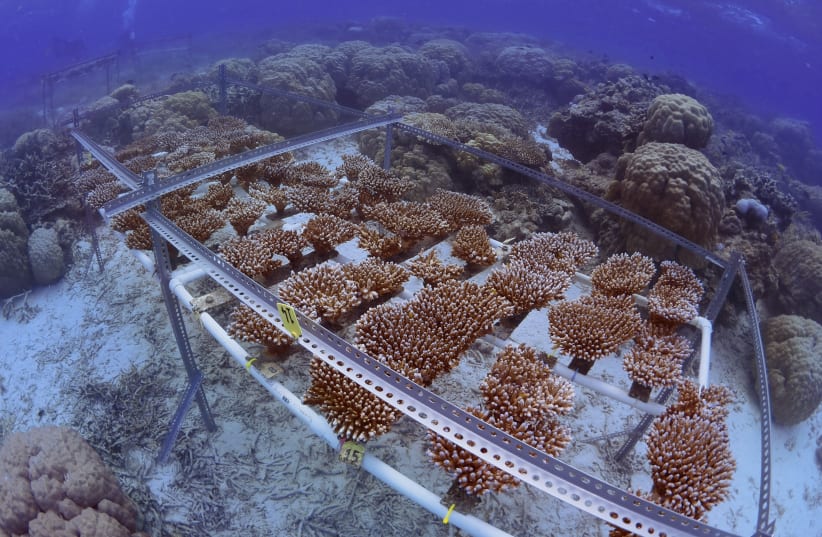
Cultivating Resilience - Breeding Heat-Tolerant Corals
Share
Coral breeding is expected to help future generations of coral survive amidst climate change challenges. (photo credit: JAMES GUEST)
Cultivating Resilience - Breeding Heat-Tolerant Corals
In response to the escalating impacts of climate change on coral reefs, scientists have made significant strides in breeding corals that can withstand elevated temperatures. These efforts are crucial for preserving coral ecosystems, which support a vast array of marine life and provide essential services such as coastal protection and support for fishing communities. The development of heat-resistant corals could help mitigate the effects of coral bleaching, a phenomenon that leads to widespread coral death and ecosystem disruption.
The Science of Coral Resilience
The process involves selective breeding techniques where scientists identify and crossbreed individual corals that show greater resilience to heat stress. This genetic approach not only enhances the corals' survival rates under harsh conditions but also helps maintain their ability to reproduce and build reef structures. Such advancements are pivotal in efforts to sustain coral populations that are rapidly declining due to rising ocean temperatures.
Implications for Coral Reef Ecosystems
Heat-tolerant corals are a beacon of hope for reef restoration projects worldwide. By integrating these corals into degraded reefs, conservationists can help accelerate recovery processes and enhance the resilience of these ecosystems against future climate impacts. This proactive approach is vital for the preservation of biodiversity hotspots and the protection of coastal regions from erosion and storm damage.
Challenges and Future Directions
Despite the promising progress, breeding heat-resistant corals is not without its challenges. Issues such as genetic diversity and ecological compatibility need careful consideration to ensure that these corals can thrive without adverse effects on existing marine ecosystems. Moreover, this strategy must be part of a broader conservation effort that includes reducing greenhouse gas emissions and managing local stressors on coral reefs.
Global Impact and Conservation Efforts
The cultivation of heat-tolerant corals has significant implications for global biodiversity conservation and the fight against climate change. As coral reefs are among the most diverse and economically important ecosystems on the planet, protecting them is a priority for environmental organizations, governments, and communities worldwide. Continued research and funding are essential to expand these efforts and implement large-scale reef restoration projects that can withstand the challenges of our changing climate.
The development of heat-tolerant corals represents a groundbreaking shift in marine conservation, highlighting the role of scientific innovation in solving ecological crises. It is a testament to the power of genetic research and its potential to transform our approach to environmental protection and sustainable development.
